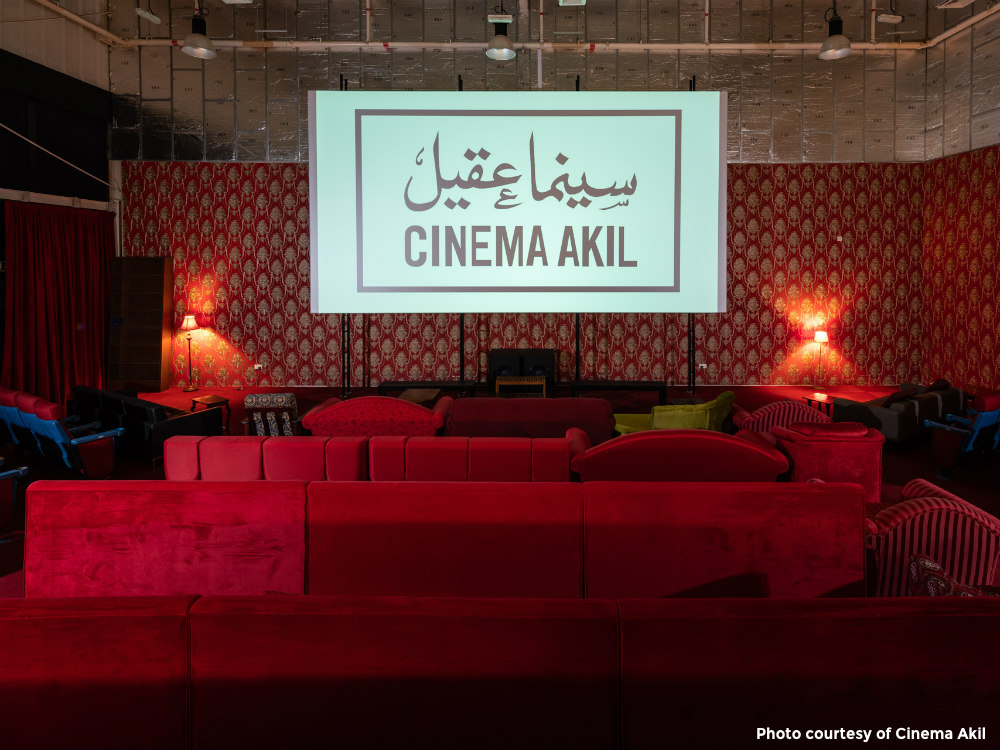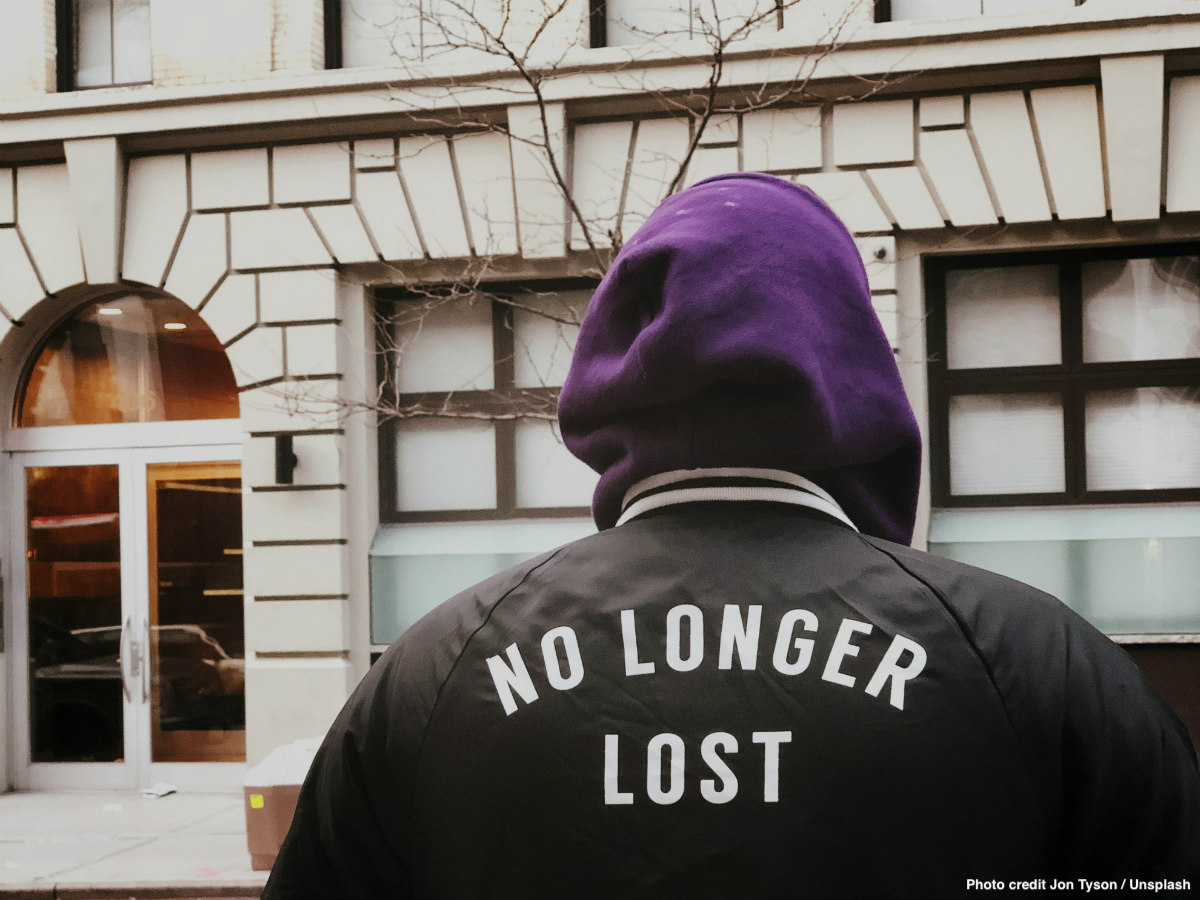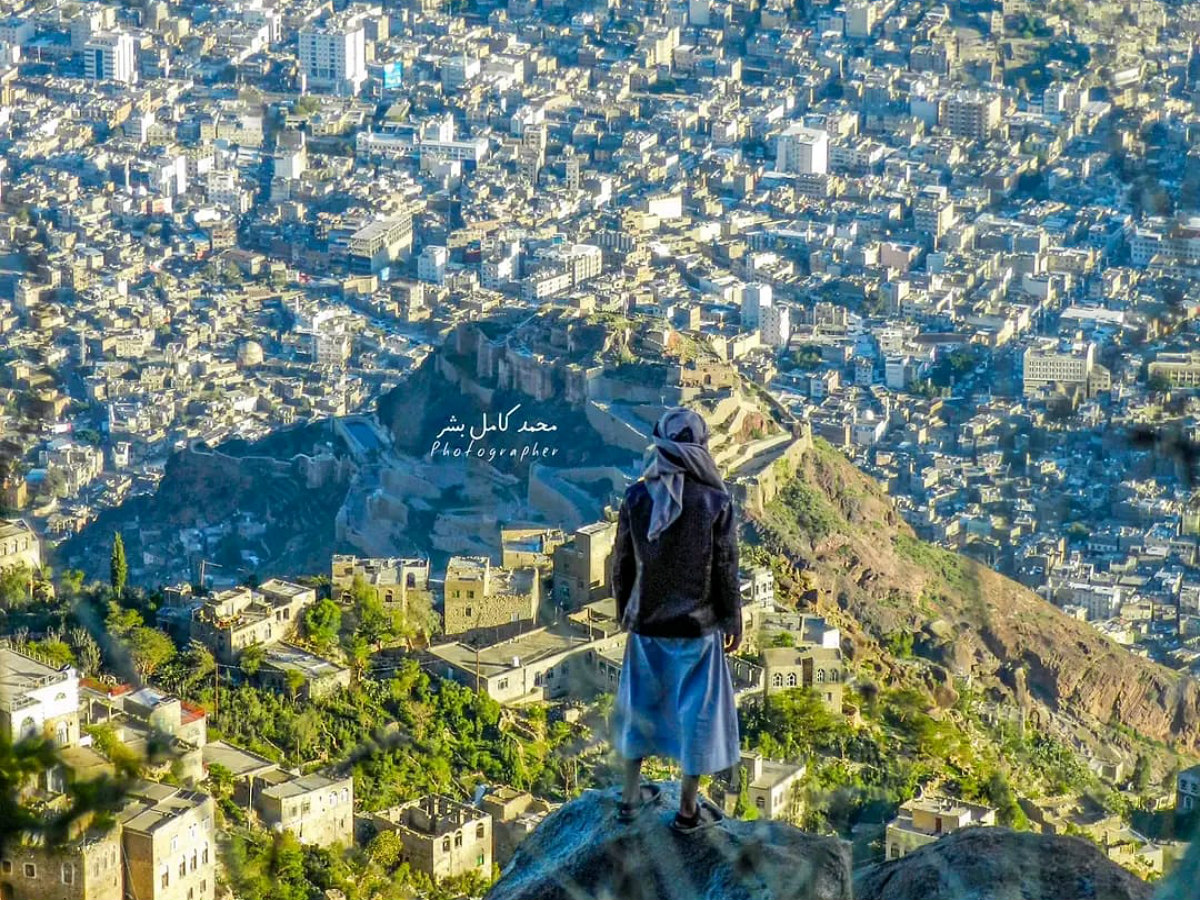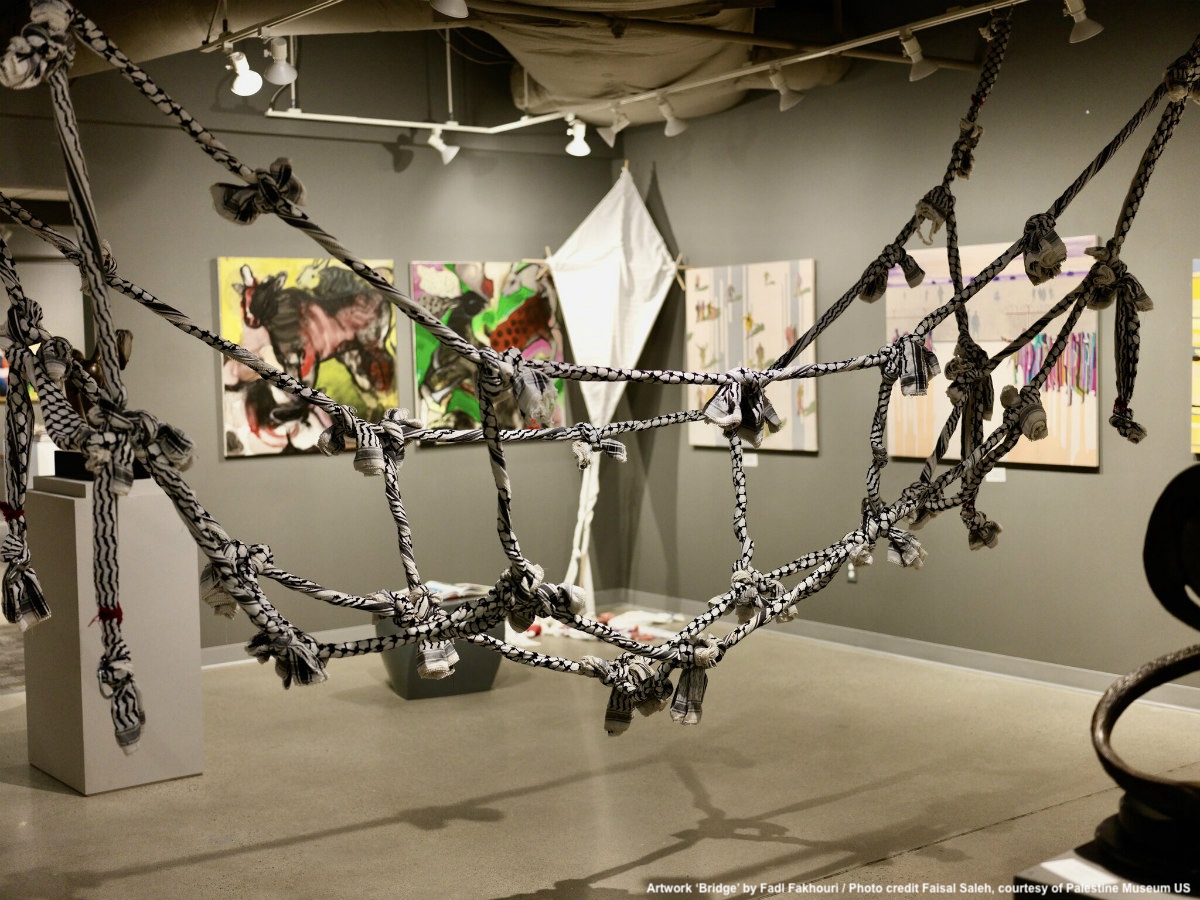Cinema Akil is an independent cinema platform in Dubai City which showcases directors and filmmakers from various decades and cultures to the audiences in the United Arab Emirates. Its program truly lives up to the important role of cinemas in cities. It is always filled with quality films, which are a reflection of societies across the world with high artistic integrity.
Launched in 2014 as a nomadic cinema, its founder Butheina Hamed Kazim has started a long journey for the love of film six years ago. She founded a traveling cinema which has held more than 60 pop-up cinemas attracting over 50,000 attendees in Dubai, Abu Dhabi and Sharjah. She was a Fulbright scholar of Media, Culture and Communication at NYU’s Steinhardt School of Culture, Education, and Human Development. Kazim has also worked for television and radio stations in the UAE at well-known media conglomerates and has participated in film festivals internationally.
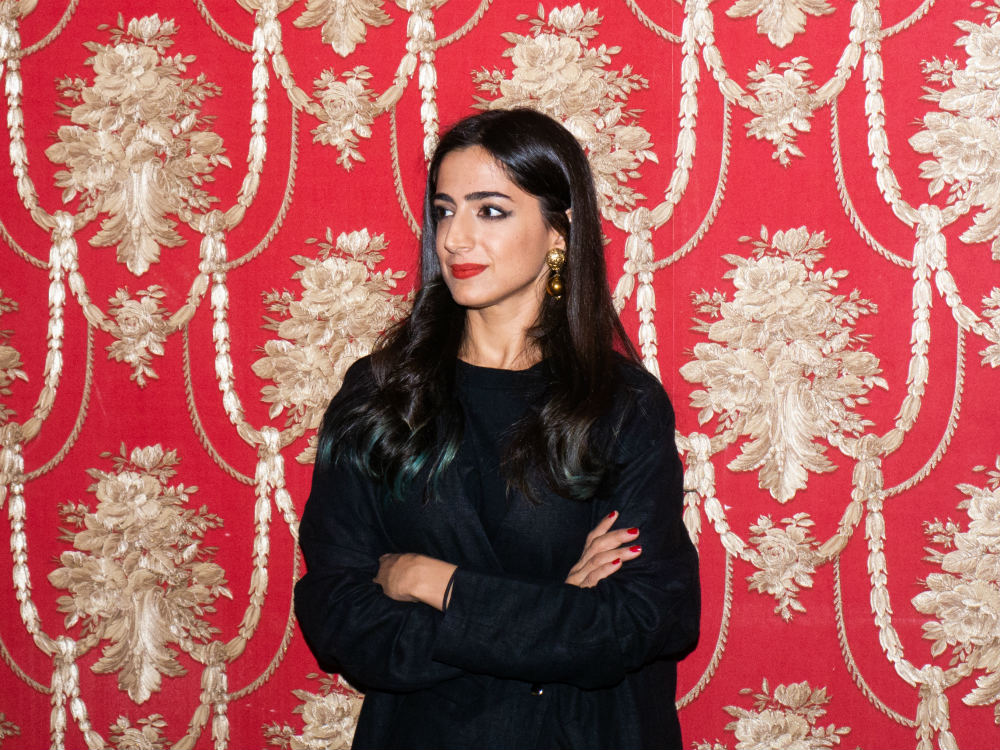
Since September 2018, Cinema Akil has its first permanent location in Alserkal Avenue, an industrial area in the neighbourhood of Al Quoz in Dubai City converted in 2007 into a cultural district of contemporary art galleries, creative businesses and non-profit organizations.
Cinema Akil became then the first arthouse cinema in the Gulf Region. Its location enhances the experience of watching a movie by bringing people together in a different way. The interior of the cinema is as beautiful as the films it is showcasing.

Behind Cinema Akil’s open-minded approach towards an international audience is also the mindset of the third-culture kid Luz Salem Villamil, born in Bogota to a Palestinian father and Colombian mother, raised in Fujeirah. She supervises Cinema Akil’s programme.
Exposed to a greater variety of cultural influences Salem Villamil masterminds the important role of cinemas in cities with a multicultural movie listing and the organization of meaningful festivals and pop-ups cinemas. With more than 11 years experience in media, production and film in the UAE, she is the creator of Alternativo Latino, UAE’s first Latin American Film Week and currently sits on the jury of the 10th Zayed University Middle East Film Festival (ZUMEFF).
Movie theatres give people a place to go to, to escape, to think and dream
This week the first edition of the pop-up cinema Al Marmoom, Film in the Desert took place. It has brought Cinema Akil back to its nomadic roots. Over four nights it offered a series of films ‘speaking the language of the desert, a lineup of poetry, frame by frame enamored by the desert in all its faces’. I couldn’t imagine a better place to watch MAD MAX. Cinema Akil makes you think and dream.
According to a study in 2017, no matter the city surveyed, when asked how people wanted to feel when they went to the cinema, most agreed on laughing, followed closely in most cities by being surprised. In the third spot, Moscow, Madrid, Rome and Berlin wanted to dream, but Paris, Istanbul and London would rather think.
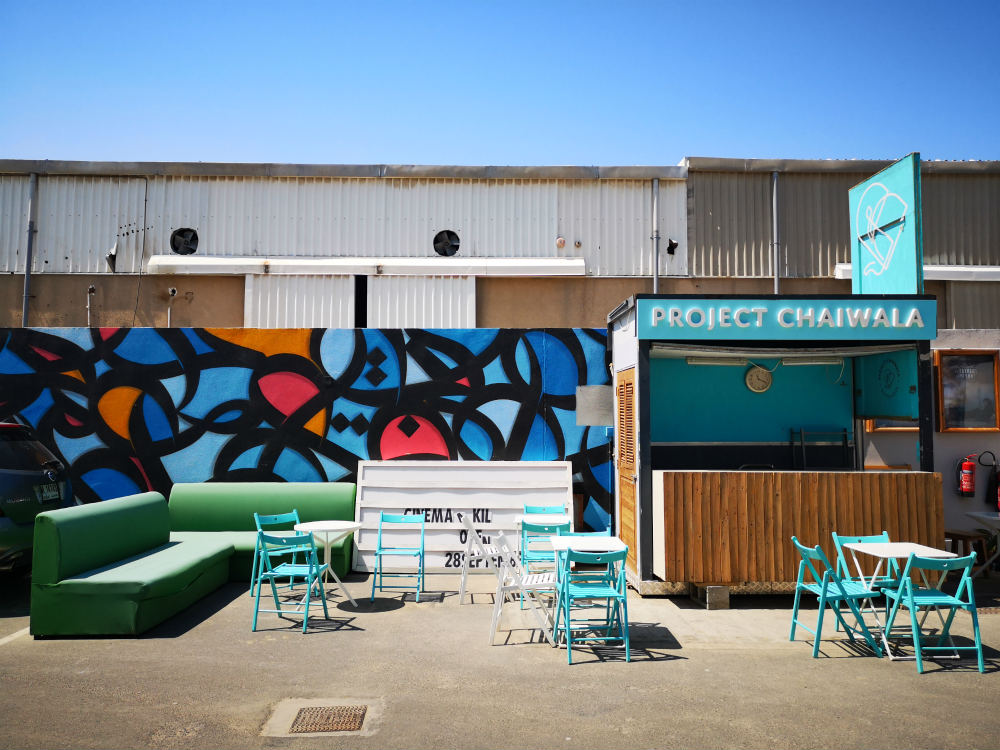
Cinemas are an important part of the urban culture. The influence of the movies they show leads society too. Also cinematic images of cities may have been influential in the ways in which cities have been imagined and conceived. But the city is its people.
In one of Cinema Akil’s pop-up cinemas themed ‘Arabs and the city’ the audience ‘shall meet the Arab city, its inhabitants – the unforgiving and the kind. The cacophonous melodies of the city will guide them, through the hopes, dreams and motivations of the frail and fraught lives that linger and push. Jerked around by the hustle of the city, prodded by its demands, the viewers shall encounter Arab experiences of that particular inhalation of soot, smoke and relentless dynamism that is the hallmark of an Arab city’.
Follow us into the dark
Cinema Akil is also a member of the Network of Arab Alternative Screens (NAAS) which includes members from the MENA region such as Metropolis in Beirut, Zawya in Cairo and Cinematheque du Tangier in Morocco. They are all committed to the important role of cinemas in cities to raise awareness within society about critical issues and human values with the same spirit.
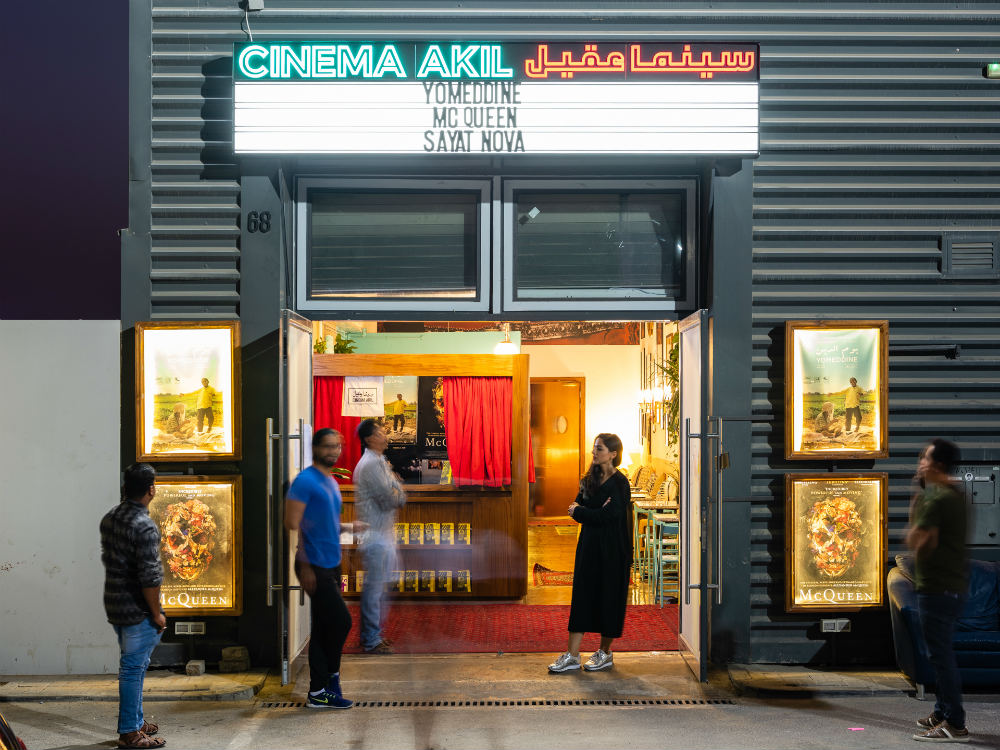
Last year the strong feminist voice behind Cinema Akil has joined forces with Warehouse421, an arts and design center for artistic exchange and to stimulate critical discourse in Abu Dhabi and which is also home to the UAE’s longest-running series of contemporary Arab cinema.
They want to bring Female Film in Focus by showing contemporary films about, on and by Arab women. With the heart of a woman at its core, cinema in Abu Dhabi gets an even stronger voice. Audiences will see a world through the lens of an Arab woman. ‘They will walk in her shoes, or by her side, hear her spirit thunder and sputter, watch her heart break or pound its pain away’.
At a time where discussions on gender equality in the film industry have gained increasing momentum, the world now is discovering the work of more writers and filmmakers who also happen to be women.
However, so far movie-goers in cities unconsciously still consume programs mostly produced by men. But not at Cinema Akil, the program is a woman.
